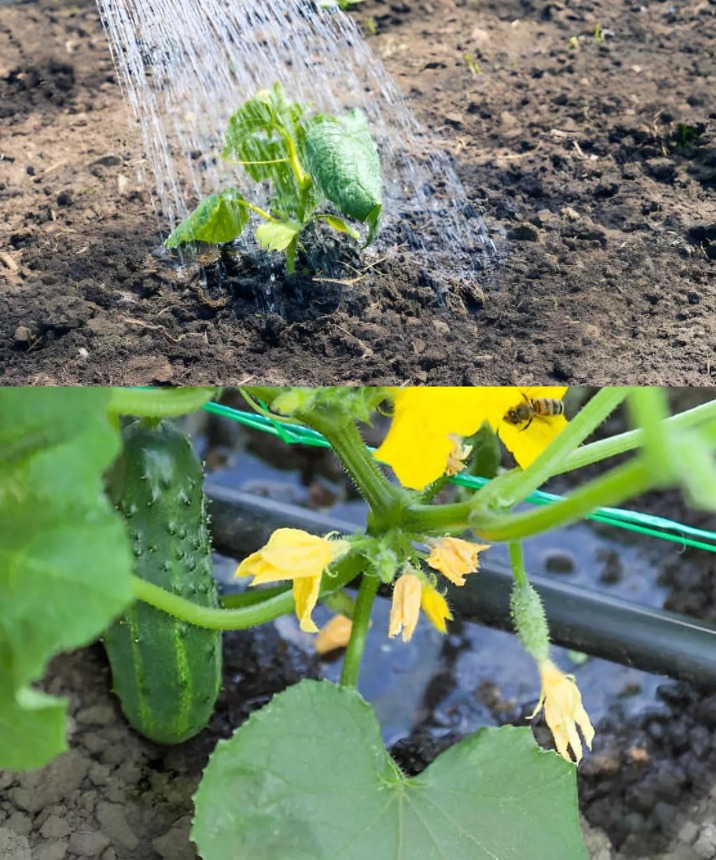Watering is an essential part of caring for cucumbers, but excess water can cause various problems for these delicate plants. Understanding the implications of overwatering in cucumbers and adopting good practices can help prevent issues and promote healthy plant growth. Here’s what you need to know:
Implications of Overwatering:
- Root Rot: Soil constantly saturated with water can lead to root rot in cucumbers, compromising their ability to absorb essential nutrients.
- Poor Soil Aeration: Excess water in the soil reduces the availability of oxygen to the roots, which can result in poor root development and growth issues.
- Promotes Fungal Diseases: Cucumbers grown in overly wet conditions are more likely to develop fungal diseases such as powdery mildew and fruit rot.
- Reduction in Production: Excessive foliage growth at the expense of fruit production can occur when cucumbers receive too much water.
Good Watering Practices for Cucumbers:
- Water Moderately and Regularly: It’s preferable to water cucumbers regularly but moderately, allowing the top layer of soil to dry slightly between watering sessions.
- Water at the Base: Avoid watering the leaves of cucumbers to reduce the risk of foliar diseases. Direct water directly to the base of the plant.
- Use a Drip Irrigation System: A drip irrigation system can deliver water directly to the roots of cucumbers, reducing the risk of overwatering and diseases.
- Monitor Soil Moisture: Regularly check soil moisture by inserting your finger into the soil. If the soil is moist deep down, watering is not necessary.
- Promote Drainage: Ensure that the soil in which cucumbers are planted has good drainage to prevent water accumulation around the roots.
By adopting these good watering practices, you can help prevent issues associated with excess water in cucumbers while promoting healthy growth and abundant fruit production. Keep a close eye on your plants and adjust your watering strategy based on their specific needs for the best results.
